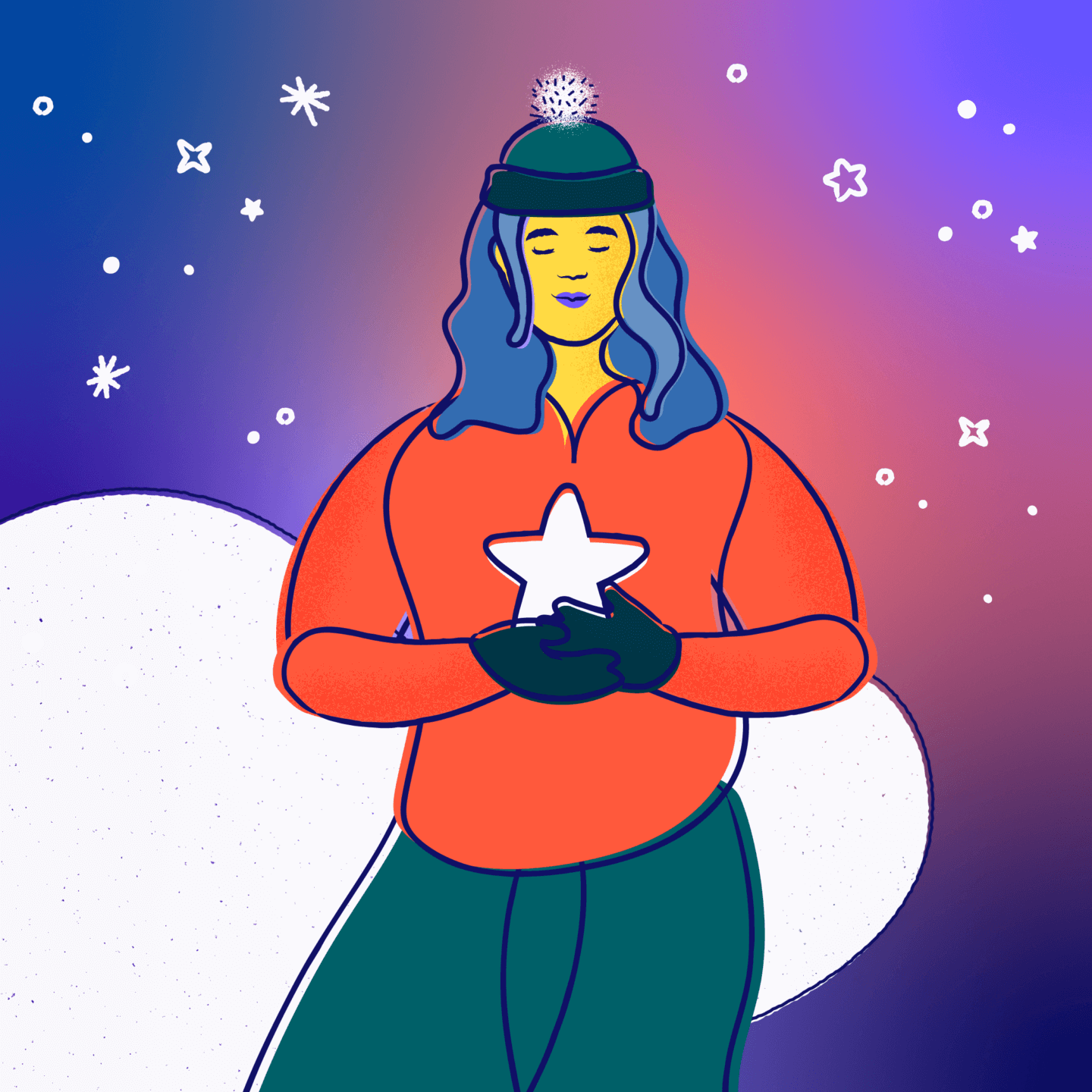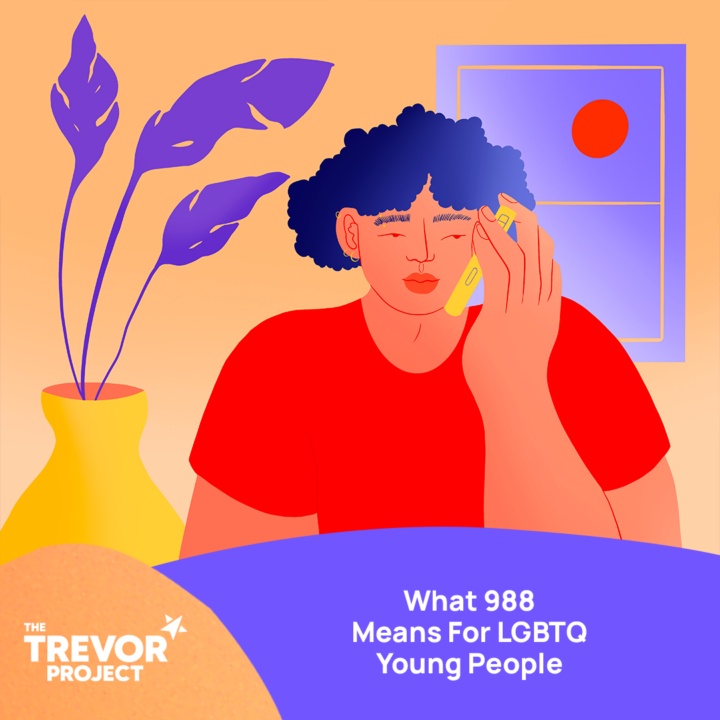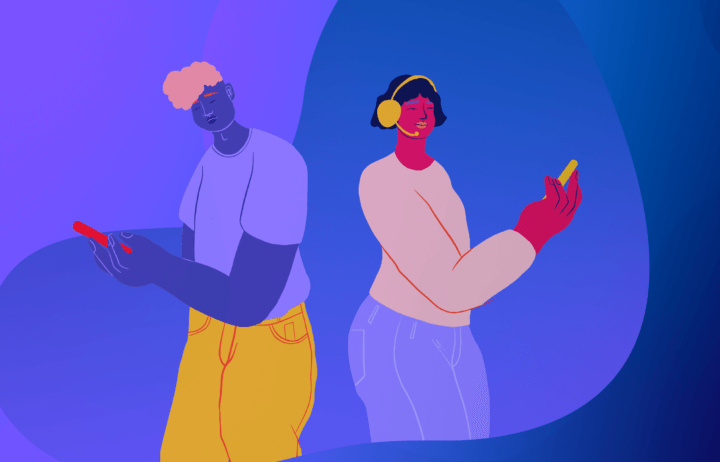Despite having two parents who loved me, a home, food, and clothes, I had pediatric depression. Christmas — the holiday that my family celebrates — became a primary challenge in my elementary school years. For whatever reason, whether it was the compulsory joy or the forced extended time spent with family, I found it nearly impossible to be happy on December 25. This was met with confusion and eventually anger from my mom, whose favorite holiday is Christmas. If she noticed my moping, I was to smile immediately. “Smile, wear the red velvet dress and white tights. I don’t care if you hate it. Children are starving.” A command to smile and be pretty became a weapon of its own kind.
After a pre-Christmas church service when I was 13, I impulsively came out to my mom, admitting to her that I had harbored crushes on girls for many years. It was the tipping point before a ruthless Chicago vortex, and the snow on the ground had frozen to its crunchy state, covering the grass like fields of glaciers. In our icy backyard I watched my mom calibrate to my admission and swiftly reject it. “You just don’t know who you are yet,” she responded, “and you’ll end up married to a man anyway.” Off she went into the house, leaving me in the lurch of the glacial mass behind my childhood home.
In my later adolescence, December 25 became a day for screaming matches. I’m sure my parents, especially my mom, were baffled at my ability to ruin so many holiday events with my petulant and ungrateful misery. “How could you be so unhappy when you are talented, beautiful, and smart?” they asked, referencing my laundry list of privileges. And still I persisted in ruining the holidays, either by sulking and refusing to participate, hiding in my room or the basement, or picking a fight that ended in hoarse voices.
The Christmas of my fifteenth year came a few months after I had finally been diagnosed with depression. For my gift, I asked for a copy of the “Diagnostic and Statistical Manual of Mental Disorders” (the fifth edition). My parents thought it a bit strange — what kind of teenager who asks for the DSM instead of a car? — but I desperately wanted to understand what was happening in my brain. This is how I came to understand depression as a mental disorder and chemical imbalance, which finally shifted the blame. The reason I couldn’t enjoy Christmas was the same reason I couldn’t enjoy my life, despite the material comforts I had. The truth is that I do know who I am, and I did know then. I had an intuitive understanding that I was misunderstood by my parents, and that I had a problem that was out of my control. I reserved a lot of anger for my mom, not only for forcing me to fit her standards of girlhood, but for repeatedly ignoring my sadness or labeling it voluntary. I didn’t yet understand the pain lurking beneath all of her happiness.
In my twentieth year, Christmas was marked by my father unexpectedly leaving my mom. My abuelita, who lived with us for my entire childhood, passed away soon after. By the end of January, I had moved out, and the house that held so much of my sadness was sold. “Home” became Miami, where my mom moved to be with her mom, and Mexico City, where my dad relocated after immigrating to the United States in his twenties.
That year, the first holiday after my family separated, my mom and I took a road trip through Spain, the country my parents lived in the early years of their marriage and where I was born. My mom transformed in front of my eyes from someone I feared to someone far more gentle, raw, and fragile. She confessed many things to me I never heard before. I learned that she saw my self-hatred as an insult — if she had made me, and I hated me, then that would make her a failure. We spent that Christmas together in Miami with no other family, and for the first time we didn’t fight because I had grown sensitive to her pain, and she to mine.
I made the decision to have a relationship with my mom, as challenging as that relationship has been and can be. I made this choice around the same time a close friend of mine decided to end her relationship with her mom entirely, for reasons that closely mirror my own experience. Not talking to my mom would also mean not talking to much of my extended family, and I weighed that decision against my own potential loneliness. And though I love my mom, I had to choose to like her, also. I made the choice to see through to her heart, which hurt far deeper than I ever imagined. I came to understand her emotions as much as mine, and sat with the uncomfortable notion that people who love each other can hurt each other severely.
So I chose my family. Many do not have that luxury. Many of my friends — particularly those in the LGBTQ+ community — have strained or estranged relationships with family, which pulses stronger around the holidays. For me, going home for the holidays means weighing both my empathy for my family and for myself. This means making really clear boundaries with my mom around how she behaves and what I will tolerate; it means talking to my other family members and asking them to defend me if needed; it means canceling plans I don’t want to go to, and not succumbing to guilt trips.
It means planning celebrations with my friends, people who have given me so much of what I wanted in my childhood (intuitive understanding). It means knowing my limits and respecting them above my family’s feelings — and also caring for my family’s feelings, too.
If you are balancing your needs and your family’s wants this holiday season, I want you to know you are not alone. I want you to know you deserve to feel safe and understood, and you have the right to make whatever boundaries you need to make that happen. You are not a burden or a confusion. You are in charge of yourself, and ultimately, the way you celebrate and who you celebrate with. Whether you choose to heal ruptured relationships or walk away from them completely, both are an opportunity for rebirth.
Sue Cardenas-Soto is a Copywriter at The Trevor Project, the leading suicide prevention and mental health organization for lesbian, gay, bisexual, transgender, queer & questioning (LGBTQ) young people. If you or someone you know is feeling hopeless or suicidal, our trained crisis counselors are available 24/7 at 1-866-488-7386 via chat www.TheTrevorProject.org/Get-Help, or by texting START to 678-678.


